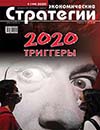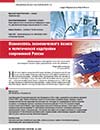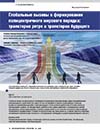Relationship of the Economic Basis and Political Superstructure of Modern Russia
DOI: 10.33917/es-2.168.2020.20-31
Economic basis existing in the Russian Federation was formed in the 1990s, but it was developing and finally took shape in the early 2000s. It was the political struggle for its implementation that determined the form, structure and nature of the modern political superstructure. As shown by the experience of recent years, the formed basis and superstructure are not intended to carry out in-depth socio-economic reforms in Russia. At the same time, Western total Jesuit Russophobia, the growing power and the number of global challenges, as well as insufficient socio-economic development of the Russian Federation, necessitate fundamental changes. In this regard, the authors provide justification for the need and explore possible ways to modernize the existing political superstructure in the Russian Federation in order to create conditions that provide a powerful and effective Russia’s response to the global challenges of the nearest future





